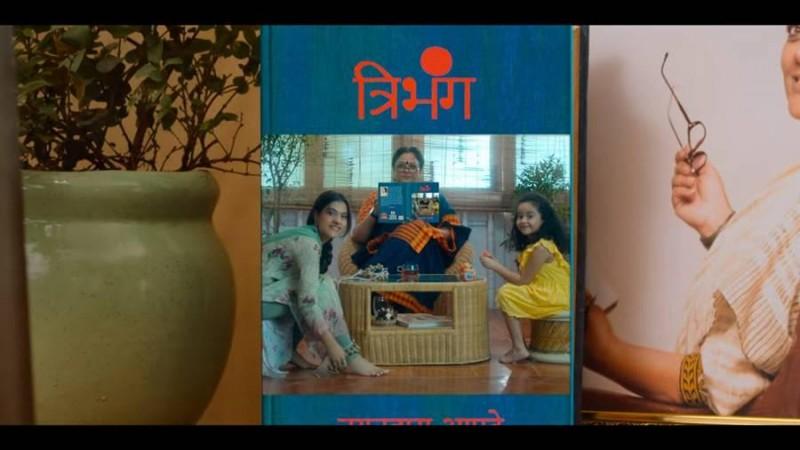There's something about a woman's heart, a mother-daughter relationship; you are aware that it is the purest form of love which arrives without any expectation of getting something else in return. Yet, any relationship with a woman always comes with complications.
The women, Anuradha Apte (Kajol), Nayanthara Apte (Tanvi Azmi) and the son Robindro (Vaibhav Tatwawaadi) are three differently rooted Indian man and women, who exhale in their own creative ways.

Nayan, is a ferocious writer, who is unable to breathe when she doesn't own a pen. Anu who is also a woman of talent, in Odissi, is unable to understand her passionate mom, mainly because somewhere the like poles repel. She connects more with her brother Robindro. This mother-daughter story does not just end in creative rebellion, but hate arises when women fail to stand by one another during the toughest phase in their lives.
No matter how much we try to redefine womanhood, feminism, ambitious mothers have always been problematic. Even Anu, who was deeply attached to the traditional Indian culture, while being a modern Indian mother, failed to see the sufferings of her daughter, Masha (Mithila Palkar). Renuka Sahane's directorial debut had a lot to say about mother-daughter relationships in two different eras.

Although Anuradha, Nayantara are fiercely independent women, the men in their lives come in all kinds of colours. There are paedophile photographers, fathers who fail to stand up for their children, painter who walks in to mend an otherwise broken relationship, and then there is fanboy Milan (Kunal Roy Kapur) who silently observes the entire family with curiosity and fascination.
Milan is an ardent fan of writer Nayantara and plays another vital role in mending one of the mother-daughter relationships. Both Nayan and Anu, who get repelled by each other, are able to find a connection through Milan, who works as the writer of their autobiography.

With every generation, the daughter sees a new perspective and learns to give their next generation a better life. Nayan who was an atheist ended up with children who became mad devotees of Krishna and Misha who grew up with a religious yet free-thinking mother, willingly wished to be part of a traditional family since she found the attached joint family to be more normal and loving than the single parent raising which she had received.
The film has many mistakes but writer and director Renuka Sahane does not compromise with the women. It takes a special kind of talent to expose that religion, traditional values, are not the root cause for hatred but lack of attention towards the need of the child.
But in her attempts to keep the women strong, and unapologetic, Sahane missed out a lot of points. The film completely revolves around Anuradha, her moods, her perceptions, her ideas of the modern Indian family, or how women should be and hence it felt a bit rushed.
Ratings: 2.5 stars




!['Lip lock, pressure, pyaar': Vidya Balan- Pratik Gandhi shine in non-judgmental infidelity romcom Do Aur Do Pyaar [ Review] 'Lip lock, pressure, pyaar': Vidya Balan- Pratik Gandhi shine in non-judgmental infidelity romcom Do Aur Do Pyaar [ Review]](https://data1.ibtimes.co.in/en/full/797104/lip-lock-pressure-pyaar-vidya-balan-pratik-gandhi-shine-non-judgmental-infidelity-romcom.jpg?w=220&h=135&l=50&t=40)










